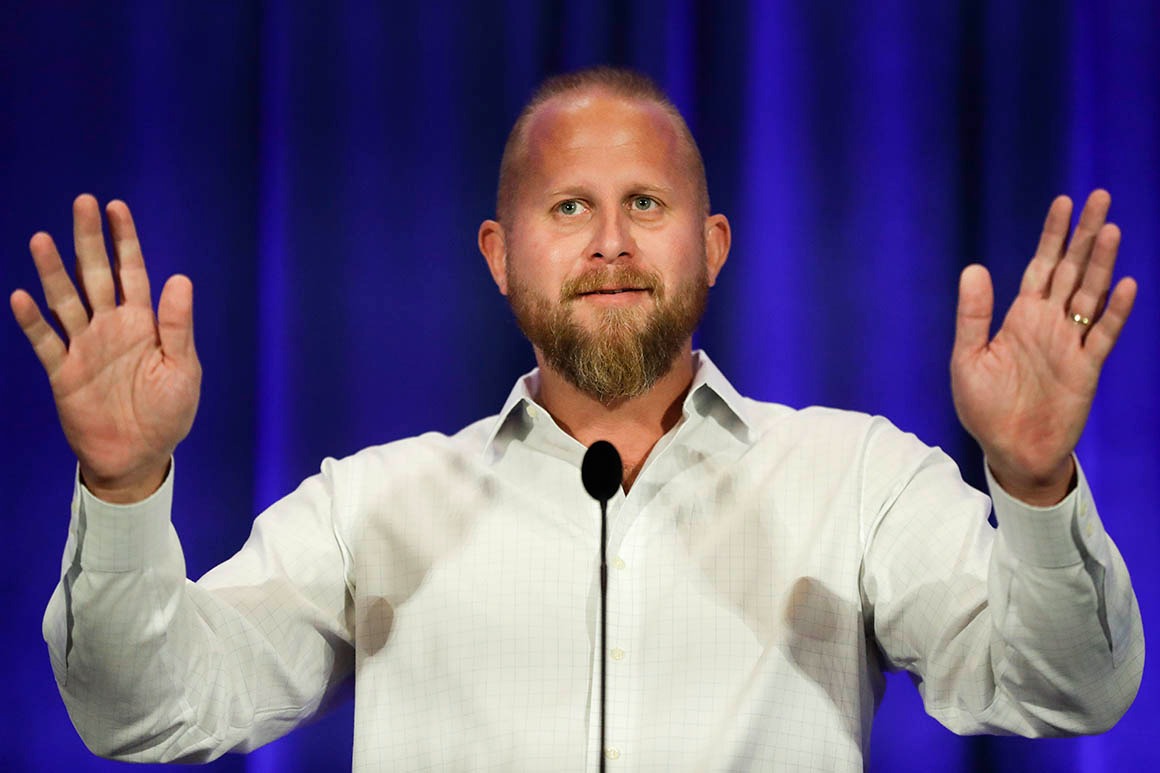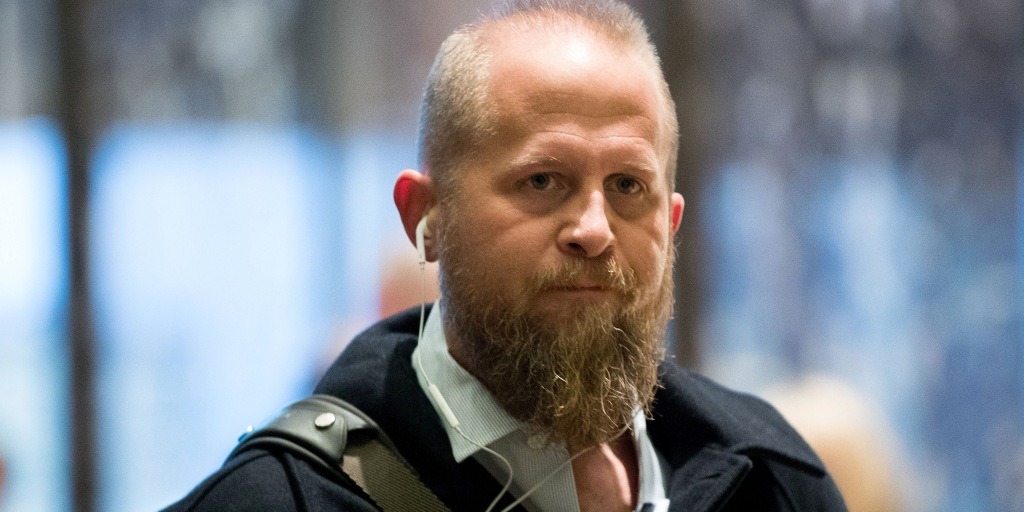In a promotional video suffused with hypnotic beats, Brad Parscale, Trump’s former campaign manager, confidently declares the dawn of a revolutionary era in politics, driven by cutting-edge artificial intelligence technology.
Parscale, the digital mastermind behind Trump’s 2016 victory, now champions an AI-powered platform poised to revolutionize not just polling, but the entire landscape of political campaigning. With grand promises of outperforming tech giants, he envisions a conservative renaissance propelled by his AI tools, challenging the status quo worldwide.

Brad Parscale thinks his AI firm can help Trump win the 2024 election (Credits: Politico)
This isn’t Parscale’s first foray into touting technology’s potential to sway right-wing campaigns. He previously partnered with scandal-ridden Cambridge Analytica, a move instrumental in Trump’s initial ascent to power. Despite a public fallout with Trump post-Capitol riot, Parscale resurfaces quietly, playing a pivotal behind-the-scenes role in Trump’s 2024 campaign against President Biden.
Parscale’s brainchild, Campaign Nucleus, harnesses AI to craft personalized emails, analyze vast data troves for voter sentiments, and identify persuadable demographics. It amplifies the voices of “anti-woke” influencers, according to sources dissecting Parscale’s public statements and marketing materials.
Yet, while Parscale extols AI’s potential to reshape political landscapes, concerns linger over its misuse. Experts caution against AI-generated misinformation aimed at distorting public discourse and undermining democratic processes globally. Nevertheless, with substantial financial backing and a bold vision, Parscale’s AI venture continues to gain traction, reshaping the contours of modern political warfare.
Despite his firm’s recent payouts from Trump’s campaign coffers, Parscale’s reach extends far beyond domestic politics. His AI-powered arsenal finds resonance across conservative movements worldwide, from Israel to Brazil, promising to bolster right-wing causes on a global scale.

Brad Parscale (Credits: NBC News)
However, Parscale’s ambitions face scrutiny, with some questioning the novelty of his AI-infused sales pitch. Skeptics argue that many of his touted innovations merely repackage existing campaign strategies under the banner of AI, underscoring the need for vigilance despite evolving digital landscapes.
Regardless, Parscale’s journey from an obscure web designer to a pivotal figure in global politics underscores the transformative potential of technology in shaping modern democracies. As he continues to champion AI’s role in conservative resurgence, Parscale’s saga epitomizes the intersection of technology, power, and politics in the digital age.























